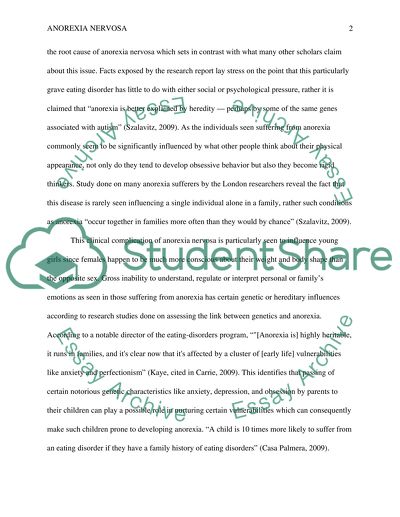Cite this document
(“Whether or not there is a genetic link to anorexia nervosa Research Paper”, n.d.)
Whether or not there is a genetic link to anorexia nervosa Research Paper. Retrieved from https://studentshare.org/psychology/1437401-findings-of-whether-there-is-or-is-not-a-genetic
Whether or not there is a genetic link to anorexia nervosa Research Paper. Retrieved from https://studentshare.org/psychology/1437401-findings-of-whether-there-is-or-is-not-a-genetic
(Whether or Not There Is a Genetic Link to Anorexia Nervosa Research Paper)
Whether or Not There Is a Genetic Link to Anorexia Nervosa Research Paper. https://studentshare.org/psychology/1437401-findings-of-whether-there-is-or-is-not-a-genetic.
Whether or Not There Is a Genetic Link to Anorexia Nervosa Research Paper. https://studentshare.org/psychology/1437401-findings-of-whether-there-is-or-is-not-a-genetic.
“Whether or Not There Is a Genetic Link to Anorexia Nervosa Research Paper”, n.d. https://studentshare.org/psychology/1437401-findings-of-whether-there-is-or-is-not-a-genetic.


